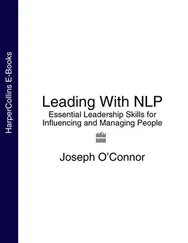John Gray - Children Are from Heaven - Positive Parenting Skills for Raising Cooperative, Confident, and Compassionate Children
Здесь есть возможность читать онлайн «John Gray - Children Are from Heaven - Positive Parenting Skills for Raising Cooperative, Confident, and Compassionate Children» весь текст электронной книги совершенно бесплатно (целиком полную версию без сокращений). В некоторых случаях можно слушать аудио, скачать через торрент в формате fb2 и присутствует краткое содержание. Год выпуска: 1999, ISBN: 1999, Издательство: HarperCollins e-books, Жанр: psy_childs, sci_pedagogy, Психология, на английском языке. Описание произведения, (предисловие) а так же отзывы посетителей доступны на портале библиотеки ЛибКат.
- Название:Children Are from Heaven: Positive Parenting Skills for Raising Cooperative, Confident, and Compassionate Children
- Автор:
- Издательство:HarperCollins e-books
- Жанр:
- Год:1999
- ISBN:978-0-06-133886-1
- Рейтинг книги:4 / 5. Голосов: 1
-
Избранное:Добавить в избранное
- Отзывы:
-
Ваша оценка:
- 80
- 1
- 2
- 3
- 4
- 5
Children Are from Heaven: Positive Parenting Skills for Raising Cooperative, Confident, and Compassionate Children: краткое содержание, описание и аннотация
Предлагаем к чтению аннотацию, описание, краткое содержание или предисловие (зависит от того, что написал сам автор книги «Children Are from Heaven: Positive Parenting Skills for Raising Cooperative, Confident, and Compassionate Children»). Если вы не нашли необходимую информацию о книге — напишите в комментариях, мы постараемся отыскать её.
Children Are from Heaven: Positive Parenting Skills for Raising Cooperative, Confident, and Compassionate Children — читать онлайн бесплатно полную книгу (весь текст) целиком
Ниже представлен текст книги, разбитый по страницам. Система сохранения места последней прочитанной страницы, позволяет с удобством читать онлайн бесплатно книгу «Children Are from Heaven: Positive Parenting Skills for Raising Cooperative, Confident, and Compassionate Children», без необходимости каждый раз заново искать на чём Вы остановились. Поставьте закладку, и сможете в любой момент перейти на страницу, на которой закончили чтение.
Интервал:
Закладка:
Even if the parent is nice to the child, unless she is doing something to nurture her own bad mood, the child will feel responsible. If the parent gets upset with the child, it makes matters even worse. The child feels even more responsible and concludes he is bad and unworthy. When parents lash out at their children, they need eventually to come back and apologize. Otherwise, children develop the belief that they are somehow responsible whenever their parents yell, argue, or fight.
Children assume too much responsibility
whenever parents yell, argue, or fight.
When parents argue, they should always do it in another room; otherwise, their children assume too much guilt.
Ideally, parents should have good communication skills so they don’t have to fight. If they do fight, they should do it quietly and in another room or location. When children even witness mistreatment of others, they will assume responsibility. Besides needing their parents to control them, children need their parents to be in control of themselves.
UNDERSTANDING THE GENERATION LINE
Parents and children are a generation apart. This gap must always be respected. Parents are above the generation line and children are below. To be above the line means to be responsible and in control. To be below the line means to be dependent on and in the control of the parent above the line.
When parents are calm, cool, collected, loving, peaceful, understanding, respectful, compassionate, and cooperative, they are in control of themselves and above the line. When children are dependent on their parents for control, they are below the line. Below the line children get to be children.
With parents above the line, they have an opportunity to benefit from their parents’ resources and consciousness.
With parents on top, children have an opportunity to develop all the necessary skills of growing up. Children are born with the potential to respect others, cooperate, forgive, self-correct, share, love, persist, and adapt, but they need the guidance and support of someone who has already learned these skills. When parents are above the line and children are below the line, they automatically draw upon their parents’ consciousness as a resource.
When parents behave in irresponsible ways, either to each other, the world, or to their children, then their children cannot draw on their support. When parents are no longer in control and behave like children, they move below the line. When parents move below the line, then children move up above the line and become more responsible.
When parents move below the generation
line, children may have to grow up too soon.
This is why yelling and screaming at your kids can make them jump back into control. When parents yell and scream, spank, hit, or punish, it is often when the parent has lost control and is now behaving like a child out of control.
When the parent moves below the generation line by behaving like a child, the child goes up above the line and temporarily behaves more like a responsible adult. Although the child stops what he was doing, he is now on his own without the support of a parent in control.
If mom or dad is going out of control, then a child is left on her own and suddenly goes into survival mode. The problem with this survival mode is that she is forced to grow up too soon. Without a parent, she has to become her own parent. In this process of growing up too quickly, children suppress aspects of who they are and of their development.
When parents go out of control, children quickly go back into control, but not in a healthy manner. Instead of learning to manage negative emotions and demanding desires, they cope by suppressing them.
This is similar to what happens when children are neglected or abandoned. For example, when a teen leaves home at age twelve, certain parts of who he is never get a chance to develop. He may be able to function like an adult, but certain skills like healthy emotional management or the ability to be dependent on others and ask for help are not developed. He may be very loving, but has greater difficulty being intimate or making a lasting commitment. This doesn’t mean he can’t function in life — it just means that something will be missing.
To give our children a chance to develop fully, they need eighteen years to be below the generation line. They need to feel that their parents are in control. They need to feel that they can depend on us to be there for them and that they don’t have to be there for us.
DIVORCE AND THE GENERATION LINE
When parents get divorced, it also affects the generation line. In the absence of one parent, a child will often rise up above the generation line to comfort and nurture the wounded parent. It takes two parents above the line to raise a family of children below the line. When one parent is absent because of separation, divorce, or simply neglect, then children below the line will tend to rise up and replace the missing parent.
In addition, when a parent mistakenly looks to a child for emotional support and nurturing, the child rises above the generation line. When a parent needs emotional support, she should instead look to another adult who is above the generation line. It is unhealthy to try to get from your children the support you should be getting from another adult.
When a parent needs emotional support, she
should instead look to another adult who is
above the generation line.
For this reason, single parents are encouraged to get a life after divorce. It is not healthy to look to your children to fill up your life. Looking primarily to your children may feel good, but your children don’t get a chance to grow up. They will grow up too quickly. They will tend to assume too much responsibility in life and then suffer from the various symptoms of guilt and unworthiness.
These are some of the symptoms of assuming too much responsibility:
Sensitive children tend to feel like victims in life and powerless to get what they want.
Responsive children often become people pleasers who deny their own wishes to accommodate others.
Receptive children become submissive, passive, and uncreative in life.
Active children become high achievers but are often disrespectful, too controlling, or abusive to others.
When parents behave responsibly and stay above the generation line, children have an opportunity to develop in a healthy manner. They still make mistakes and throw tantrums, but they develop the necessary coping skills for eventually becoming adults. Adults need to get what they need from other adults if they are to nurture their children below the generation line.
This insight frees single parents from the guilt that will often keep them from dating or pursuing a romantic love life. Although your children may resist your going out, it is still very important to go out. Your children need clear messages that you have a life separate from them and that you need others to make you feel good and nurture your needs for companionship, friendship, communication, romance, and fun. Unless you are taking action to get what you need elsewhere, your children will feel overly responsible.
CONTROLLING YOUR PRETEENS AND TEENS
Some parents will attempt to control a teen’s activities too much while others will give teens too much freedom. There is no set list of correct rules or limits for each age. It takes common sense and trial and error to determine how much freedom your child can handle and when. Setting limits about behavior is a matter strictly between the parent and child; whether it’s watching TV, time on the phone, outside school activities, language, food and diet, time for homework, curfew, dating, friends, sexual behavior, chores, finances, appearance, and manners.
Читать дальшеИнтервал:
Закладка:
Похожие книги на «Children Are from Heaven: Positive Parenting Skills for Raising Cooperative, Confident, and Compassionate Children»
Представляем Вашему вниманию похожие книги на «Children Are from Heaven: Positive Parenting Skills for Raising Cooperative, Confident, and Compassionate Children» списком для выбора. Мы отобрали схожую по названию и смыслу литературу в надежде предоставить читателям больше вариантов отыскать новые, интересные, ещё непрочитанные произведения.
Обсуждение, отзывы о книге «Children Are from Heaven: Positive Parenting Skills for Raising Cooperative, Confident, and Compassionate Children» и просто собственные мнения читателей. Оставьте ваши комментарии, напишите, что Вы думаете о произведении, его смысле или главных героях. Укажите что конкретно понравилось, а что нет, и почему Вы так считаете.












